No products in the cart.
Sale
Risuteganib (CAS No. 1307293-62-4) | GMP Supplier & Manufacturer
Original price was: $24.00.$16.00Current price is: $16.00.
Risuteganib (CAS No. 1307293-62-4) is a synthetic RGD peptide with anti-integrin properties. It restores retinal homeostasis by targeting integrin receptors and reducing oxidative stress, making it a key compound for age-related macular degeneration (AMD) research.
Description
Product Description
Risuteganib is a synthetic peptide belonging to the RGD (arginyl–glycyl–aspartic acid) class, a family of bioactive sequences known for their role in cell adhesion, integrin binding, and extracellular matrix signaling. Designed as an anti-integrin therapeutic peptide, Risuteganib is unique because it interacts with three integrin receptors simultaneously, downregulates oxidative stress, and restores homeostatic balance in retinal tissues.
The compound has gained prominence in recent years because of its relevance to ophthalmic research, particularly in dry age-related macular degeneration (dry AMD) — a leading cause of vision loss worldwide with limited therapeutic options. Unlike conventional therapies that primarily slow progression, Risuteganib’s mechanism seeks to re-establish cellular equilibrium within retinal pigment epithelial (RPE) cells, providing a restorative and protective model for researchers studying degenerative eye disease.
Importance in Retinal Research
The retina is constantly exposed to oxidative stress, which contributes to cell damage and progressive loss of vision in AMD. Integrins, which are transmembrane receptors involved in cell adhesion and signaling, play a central role in mediating inflammatory cascades and stress responses. By modulating integrin activity, Risuteganib:
Reduces oxidative stress burden in RPE cells
Restores cytoskeletal integrity and homeostatic equilibrium
Enhances cell survival and metabolic resilience
Provides a novel tool for translational AMD research
Beyond AMD, the ability of Risuteganib to regulate integrin activity has implications in broader neurodegenerative disease models, ocular disorders, and oxidative stress biology.
Comparative Advantages
Multi-Integrin Targeting: Unlike single-target inhibitors, Risuteganib binds multiple integrins, amplifying its regulatory potential.
Oxidative Stress Modulation: Provides dual benefits — not only suppressing damage but also restoring balance.
Synthetic RGD-Class Design: Stable, reproducible, and optimized for peptide research applications.
Translational Potential: Its unique mechanism supports advanced research into disease-modifying strategies rather than palliative interventions.
Product Specifications
| Parameter | Details |
|---|---|
| Product Name | Risuteganib |
| CAS Number | 1307293-62-4 |
| Synonyms | Risuteganib, RGD-class synthetic peptide, ALG-1001 |
| Molecular Formula | C₆₉H₁₁₁N₂₃O₂₁ (approximate, peptide backbone) |
| Molecular Weight | ~1510.7 g/mol (approximate) |
| Sequence | RGD-derived synthetic peptide sequence (confidential modifications) |
| Appearance | White to off-white lyophilized powder |
| Purity | ≥ 98% (HPLC confirmed) |
| Solubility | Soluble in water, PBS, and most biological buffers |
| Stability | Stable at –20°C for ≥24 months (lyophilized); reconstituted solutions stable for short-term use |
| Storage Conditions | Store lyophilized peptide at –20°C, protected from light and moisture |
| GMP Compliance | Produced under GMP standards for research-grade peptides |
| Applications | Retinal homeostasis studies, AMD models, oxidative stress and integrin biology |
| Availability | Bulk, custom synthesis, and research-grade packaging available |
Notes on Specifications
Analytical Validation: Each batch undergoes HPLC, mass spectrometry, and peptide sequencing analysis.
Formulation: Supplied lyophilized for maximum stability.
End Use: Research-grade only, intended for laboratory investigations in retinal and integrin biology.
Mechanism of Action & Research Applications
Mechanism of Action
Risuteganib functions as a multi-integrin modulator. By interacting with integrin subtypes αvβ3, αvβ5, and α5β1, it directly influences cellular adhesion and signaling networks. The downstream consequences include:
Reduced oxidative stress signaling
Restoration of cytoskeletal architecture
Modulation of extracellular matrix communication
Enhancement of retinal pigment epithelium (RPE) cell survival
This is particularly important because integrins are key regulators of apoptosis, inflammatory signaling, and oxidative damage — all processes implicated in AMD progression.
Research Applications
Age-Related Macular Degeneration (AMD) – Tool compound for understanding integrin-mediated degeneration and homeostatic repair in dry AMD.
Oxidative Stress Biology – Studying how modulation of integrin receptors influences ROS levels and antioxidant defenses.
Retinal Pigment Epithelium Research – Investigating cytoskeletal remodeling and adhesion dynamics in RPE cells.
Neurodegeneration Studies – Potential applications in broader models of oxidative neurodegeneration beyond the eye.
Drug Development Benchmarking – Serves as a reference compound for integrin-based therapeutic development.
Cellular Homeostasis Studies – Provides insight into integrin-dependent survival mechanisms under stress.
Translational Insights
Because Risuteganib restores homeostatic balance instead of simply suppressing pathological activity, it represents a new paradigm in disease-modifying peptide research. It holds promise as a tool compound for regenerative approaches, especially in conditions where oxidative imbalance is central.
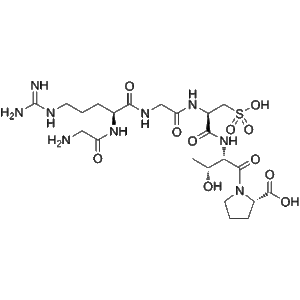
Side Effects (For Research Context Only)
In laboratory research models, potential observations associated with Risuteganib include:
Transient alterations in integrin signaling that may affect normal cell adhesion.
Oxidative rebound if improperly dosed in experimental setups.
Species-specific differences in integrin distribution and responsiveness.
Injection-related responses such as mild ocular inflammation in animal studies.
Receptor compensation over prolonged exposure, potentially diminishing efficacy.
These considerations highlight the importance of carefully controlled dosing regimens and comparative studies across models.
Disclaimer
For laboratory research use only. Not for human or veterinary use.
Keywords
Risuteganib
Risuteganib peptide supplier
Anti-integrin peptide research
RGD-class peptide for AMD research
Risuteganib oxidative stress studies
Dry AMD integrin modulator peptide
Retinal homeostasis peptide
GMP-grade ophthalmology research peptide
Risuteganib age-related macular degeneration research
Additional information
| Weight | 0.8 kg |
|---|---|
| Dimensions | 52 × 36 × 52 cm |
What is Risuteganib?
A synthetic RGD-class peptide and anti-integrin research compound.
What is its CAS number?
CAS No. 1307293-62-4.
What receptors does it target?
Primarily integrins αvβ3, αvβ5, and α5β1.
What is its mechanism of action?
It reduces oxidative stress and restores cellular homeostasis by modulating integrin signaling.
Why is it studied in AMD research?
Because it can protect retinal cells from oxidative damage and restore equilibrium in dry AMD models.
What is its molecular weight?
Approximately 1510.7 g/mol.
What is its purity?
≥ 98%, confirmed by HPLC.
How should it be stored?
At –20°C in lyophilized form, protected from moisture and light.
Is it used clinically?
No, it is intended strictly for laboratory research use.
What makes it different from other RGD peptides?
Its unique design enables simultaneous targeting of multiple integrins for enhanced homeostasis restoration.

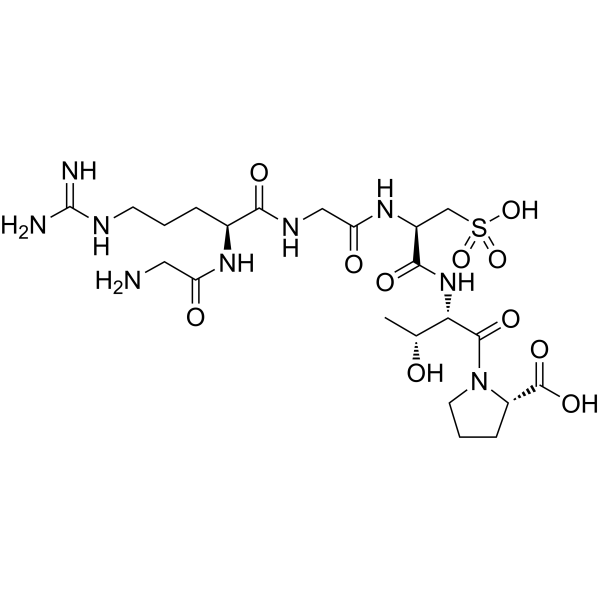


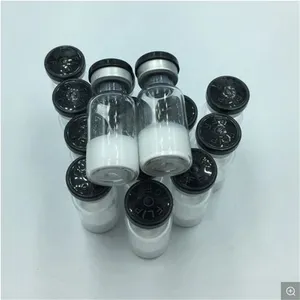
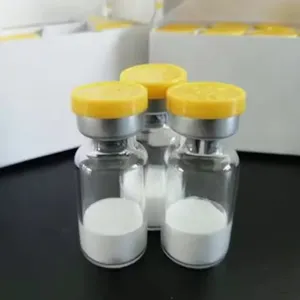
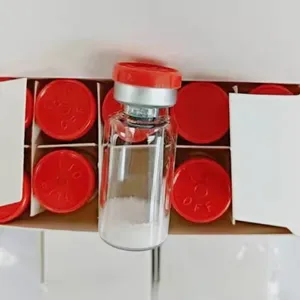
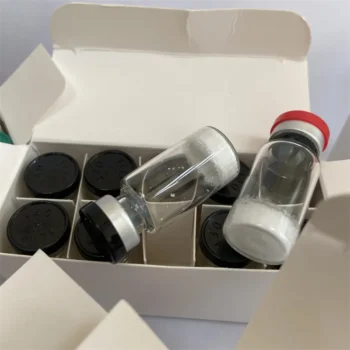
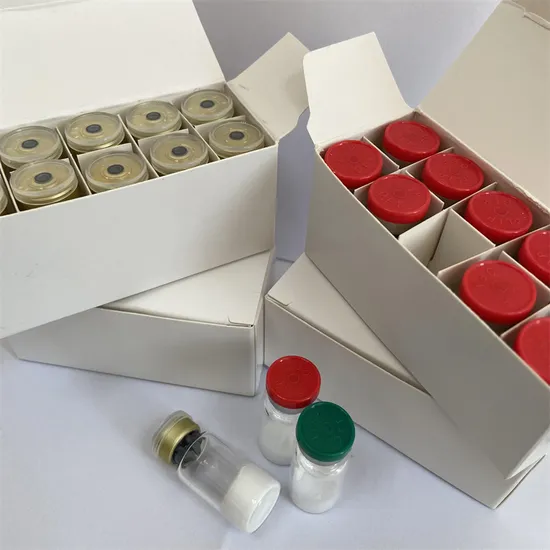
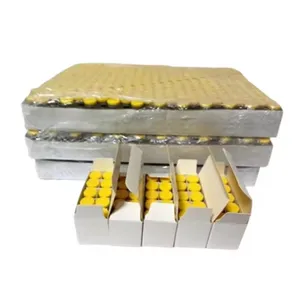
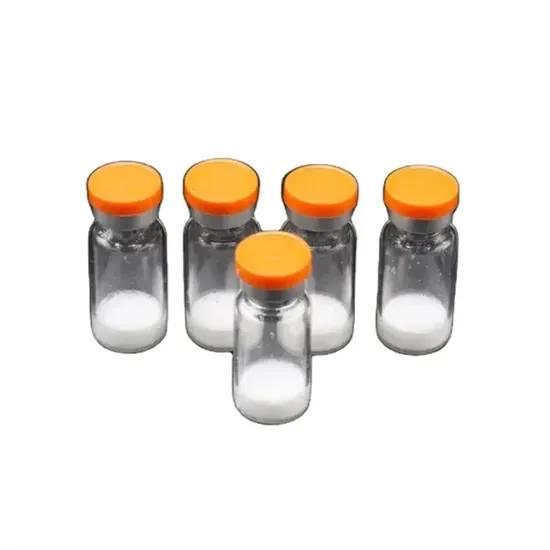
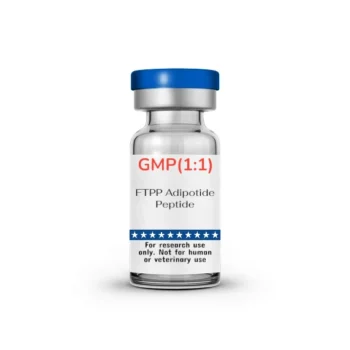
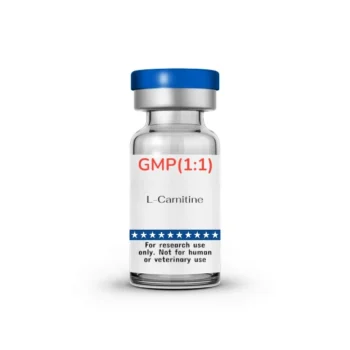
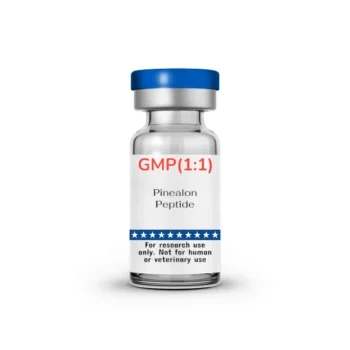
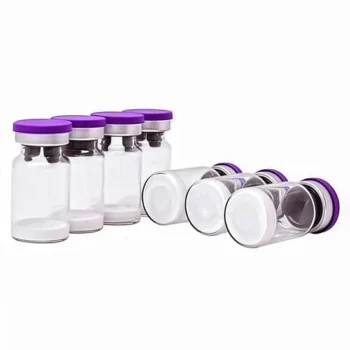

Reviews
There are no reviews yet.